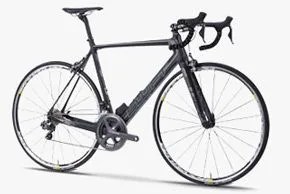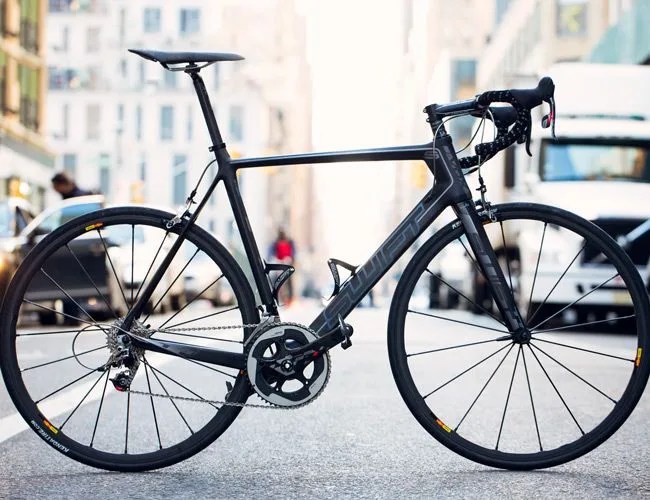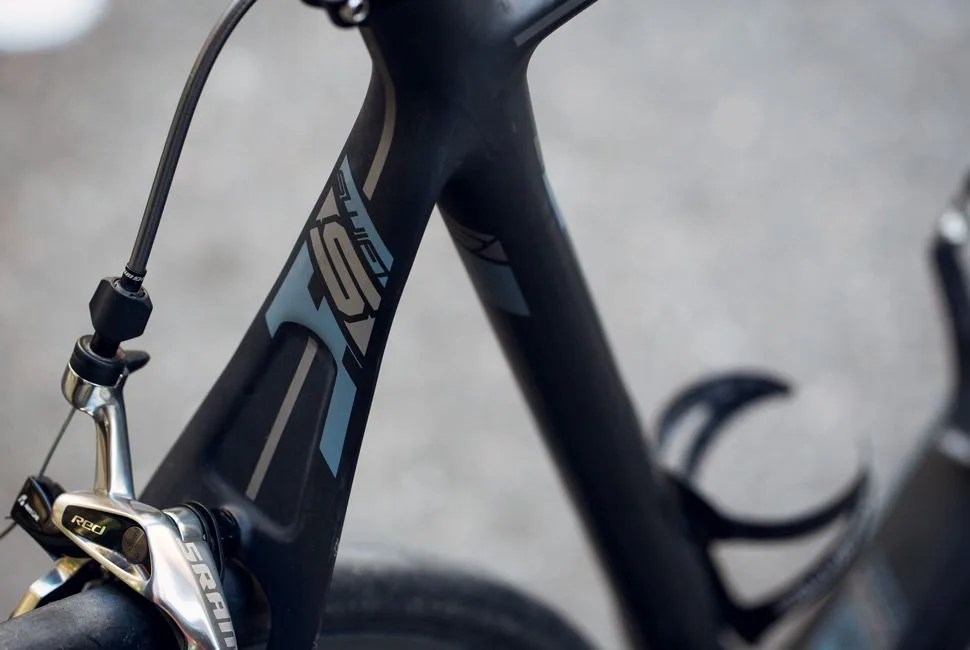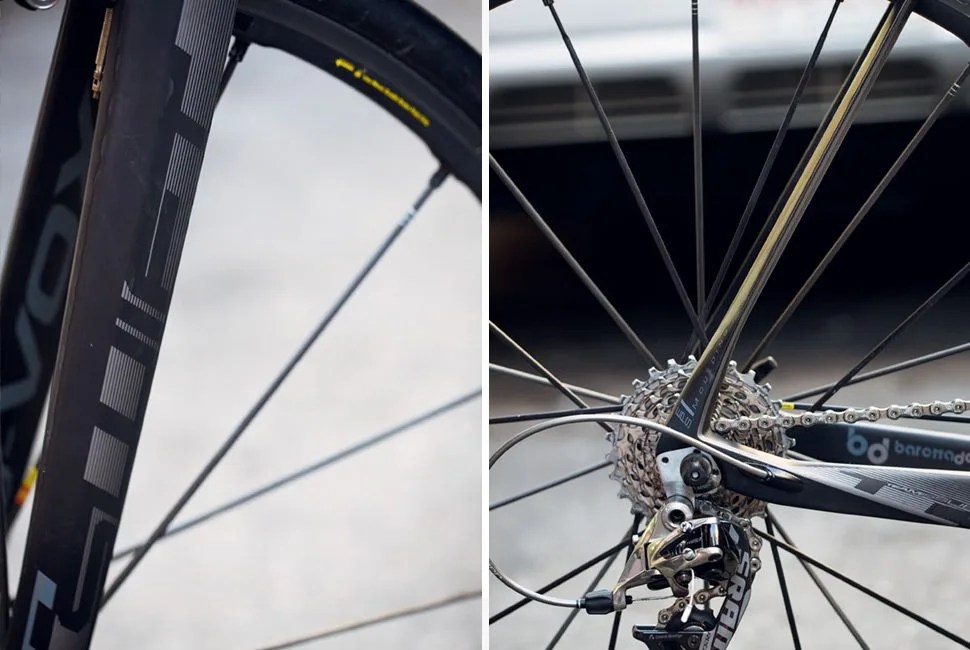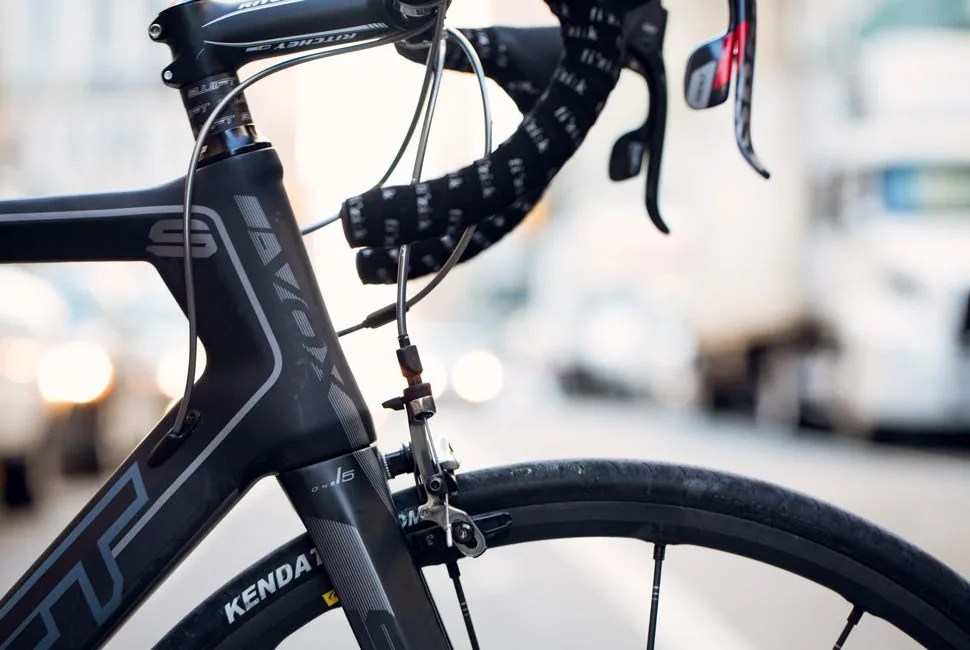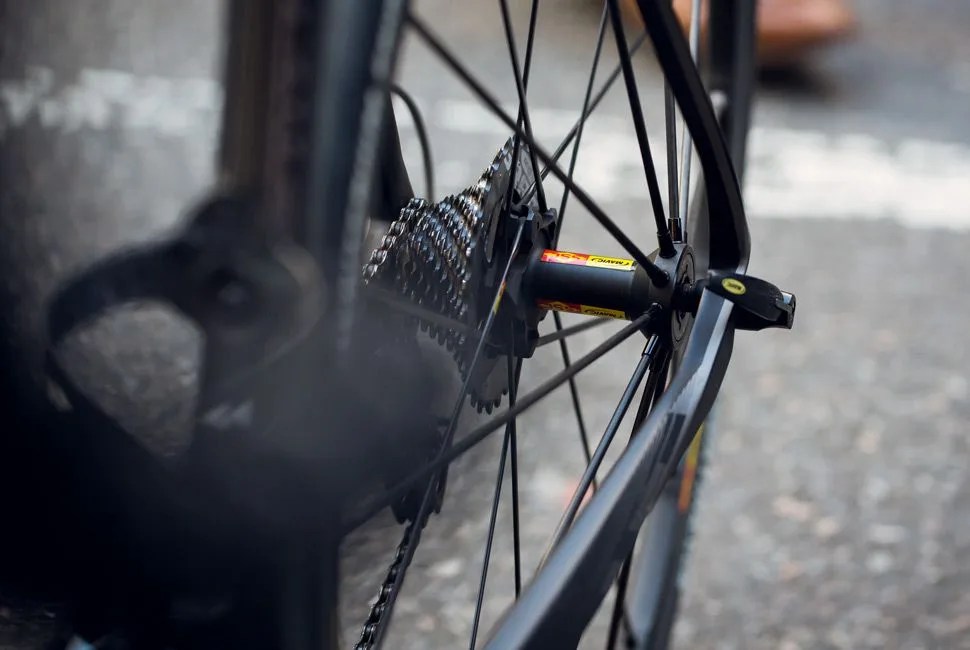6 photos
Let’s get this out first — Swiftcarbon makes its bikes in Xiamen, China, an island in the province of Fujian. That’s where its global headquarters are located. Swiftcarbon founder and former pro, Mark Blewett, and his business partner, Chen Chun Gong (who goes by “Kevin”) want you to look straight at that Made in China sticker and give it a good think, because as their site claims, “96 percent of all carbon fiber bikes are made in one of three regions in the East.” Xiamen is an hour-and-a-half flight from the island of Taiwan, host to the Taipei International Cycle Show and the other mega-power of bicycle manufacturing in the East (the third is the province of Guangdong, just south of Fujian). If you’re riding a bicycle that isn’t explicitly made in the USA or Europe, you’re likely riding one from Asia.
Swiftcarbon is located in China for a good reason. With its headquarters and CEO at the heart of bike manufacturing, it’s able to cut costs (imperative for an eight-year-old company), oversee quality control and problem-solve nuances of production more rapidly, like seeing how different seat-stay layups flex in real-world conditions (Blewett tests all prototypes himself in the hills of Xiamen). Back in 2012, BikeRadar toured the Swiftcarbon factory, which gives an inside look at what benefits there are to having your CEO available to walk through the factory floor on a daily basis. It helps — especially if you’re trying to develop a new brand quickly and efficiently. (It should be noted that the big manufacturers also, naturally, have outposts near the Asian manufacturing plants.)
The bike is nearly impossible to flex. Even when wringing the pedals deep in the drops on a smooth flat it transfers force directly into forward momentum.
The recipe seems to be working. The Ultravox Ti, the first frame released by Swiftcarbon, takes the intimate R&D and translates it to a handful of useful developments for a bicycle frame. A boxed headtube, bottom bracket and downtube optimize carbon performance and increase stiffness (as seen on Fuji frames), and the asymmetrical seat tube and chainstays also help (a calling card of Italian manufacturer Pinarello), as does the alternating layup of Japan’s Toray 1000 and Mitsubishi-Rayon 40 ultra-high modulus carbon fiber. The high-end frame has been ridden by a few pros and pro teams, including South Africa’s South African SwiftCarbon (2013, 2014), Russell Downing on Britain’s NFTO Team (2014) and Australia’s Drapac Cycling (current) who contented alongside Team Sky, Tinkoff, Movistar and others at the Tour Down Under (and won a stage of the Tour of Utah in 2015). For a new brand, that’s breakout success on the global stage.
Swiftcarbon Ultravox Ti Ultegra Di2 Specs
